Ford Explorer EV vs Porsche Taycan – Which one offers the better deal?
Compare performance, boot capacity, efficiency and price at a glance.
Find out which car is the better choice for you – Ford Explorer EV or Porsche Taycan?
Here’s where it gets real: The technical differences in detail
Costs and Efficiency: Looking at overall running costs, both models reveal some interesting differences in everyday economy.
Ford Explorer EV has a convincingly advantage in terms of price – it starts at 34200 £, while the Porsche Taycan costs 87900 £. That’s a price difference of around 53742 £.
In terms of energy consumption, the advantage goes to the Ford Explorer EV: with 14.50 kWh per 100 km, it’s slightly more efficient than the Porsche Taycan with 16.70 kWh. That’s a difference of about 2.20 kWh.
As for range, the Porsche Taycan performs somewhat better – achieving up to 680 km, about 78 km more than the Ford Explorer EV.
Engine and Performance: Power, torque and acceleration say a lot about how a car feels on the road. This is where you see which model delivers more driving dynamics.
When it comes to engine power, the Porsche Taycan has a convincingly edge – offering 1034 HP compared to 340 HP. That’s roughly 694 HP more horsepower.
In acceleration from 0 to 100 km/h, the Porsche Taycan is clearly quicker – completing the sprint in 2.20 s, while the Ford Explorer EV takes 5.30 s. That’s about 3.10 s faster.
In terms of top speed, the Porsche Taycan performs decisively better – reaching 305 km/h, while the Ford Explorer EV tops out at 180 km/h. The difference is around 125 km/h.
There’s also a difference in torque: the Porsche Taycan pulls significantly stronger with 1340 Nm compared to 679 Nm. That’s about 661 Nm difference.
Space and Everyday Use: Beyond pure performance, interior space and usability matter most in daily life. This is where you see which car is more practical and versatile.
Seats: Ford Explorer EV offers to a small extent more seating capacity – 5 vs 4.
In curb weight, the Ford Explorer EV is slightly lighter – 1908 kg compared to 2165 kg. The difference is around 257 kg.
In terms of boot space, the Ford Explorer EV offers barely noticeable more room – 450 L compared to 407 L. That’s a difference of about 43 L.
When it comes to payload, Porsche Taycan hardly perceptible takes the win – 635 kg compared to 585 kg. That’s a difference of about 50 kg.
Our conclusion: The Porsche Taycan proves to be dominates this comparison and thus becomes our DriveDuel Champion!
Overall, Porsche Taycan is the better all-rounder in this comparison.
Ford Explorer EV
The Ford Explorer EV marks a significant step forward in the brand's journey towards electrification, offering an impressive blend of performance and sustainability. This modern SUV features a sleek design complemented by advanced technology that enhances the driving experience. With a focus on comfort and innovation, the Explorer EV aims to redefine family travel for the electric age.
details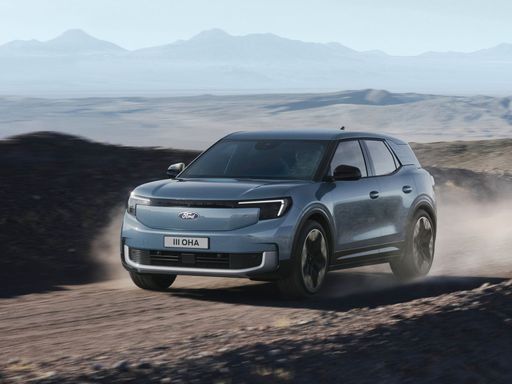 @ electricexplorer.fordpresskits.com
@ electricexplorer.fordpresskits.com
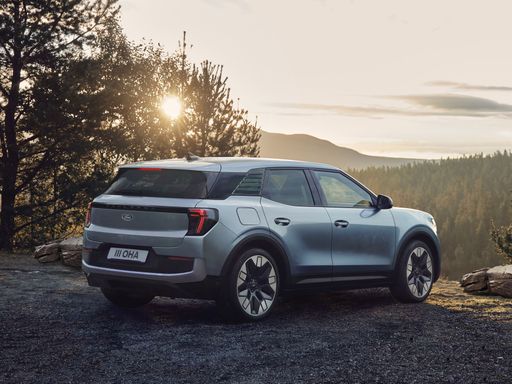 @ electricexplorer.fordpresskits.com
@ electricexplorer.fordpresskits.com
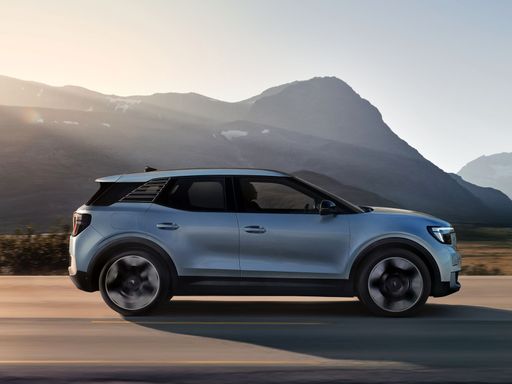 @ electricexplorer.fordpresskits.com
@ electricexplorer.fordpresskits.com
Porsche Taycan
The Porsche Taycan redefines the electric vehicle landscape with its stunning design and thrilling performance. With its smooth lines and athletic stance, this four-door sports car captures attention while delivering an exhilarating driving experience. Inside, the Taycan boasts a luxurious and high-tech interior, seamlessly blending comfort and cutting-edge innovation.
details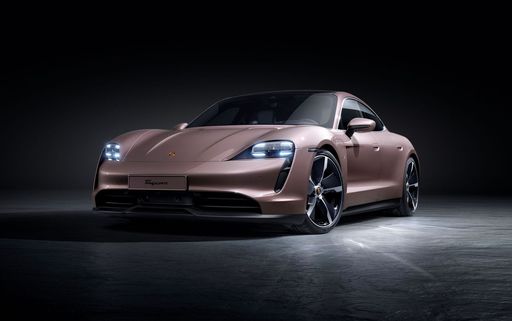 @ Porsche
@ Porsche
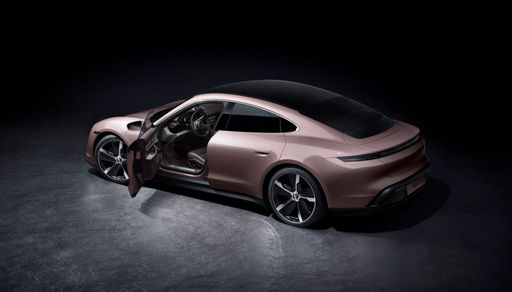 @ Porsche
@ Porsche
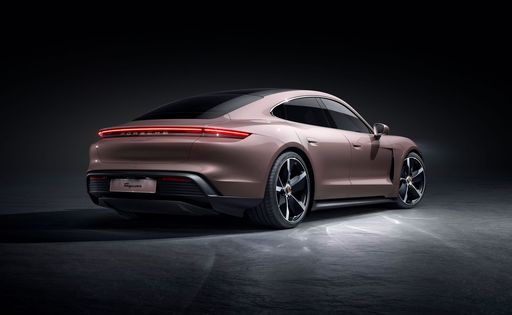 @ Porsche
@ Porsche
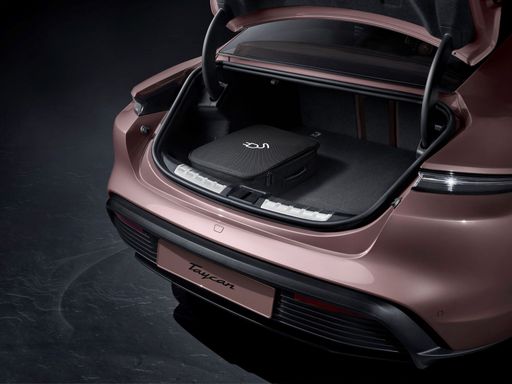 @ Porsche
@ Porsche
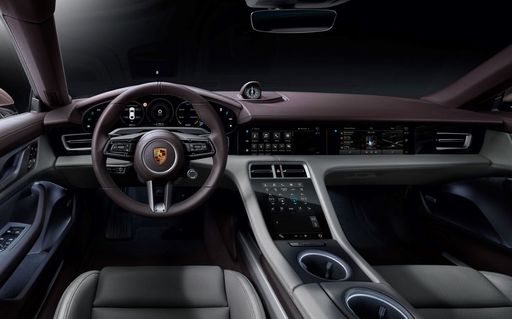 @ Porsche
@ Porsche

|

|
|
|
|
Costs and Consumption |
|
|---|---|
|
Price
34200 - 48800 £
|
Price
87900 - 206700 £
|
|
Consumption L/100km
-
|
Consumption L/100km
-
|
|
Consumption kWh/100km
14.5 - 17.2 kWh
|
Consumption kWh/100km
16.7 - 20.7 kWh
|
|
Electric Range
360 - 602 km
|
Electric Range
552 - 680 km
|
|
Battery Capacity
52 - 79 kWh
|
Battery Capacity
82.3 - 97 kWh
|
|
co2
0 g/km
|
co2
0 g/km
|
|
Fuel tank capacity
-
|
Fuel tank capacity
-
|
Dimensions and Body |
|
|---|---|
|
Body Type
SUV
|
Body Type
Coupe
|
|
Seats
5
|
Seats
4
|
|
Doors
5
|
Doors
4
|
|
Curb weight
1908 - 2179 kg
|
Curb weight
2165 - 2370 kg
|
|
Trunk capacity
445 - 450 L
|
Trunk capacity
326 - 407 L
|
|
Length
4468 mm
|
Length
4962 - 4968 mm
|
|
Width
1871 mm
|
Width
1966 - 1998 mm
|
|
Height
1630 - 1639 mm
|
Height
1378 - 1381 mm
|
|
Max trunk capacity
1417 - 1422 L
|
Max trunk capacity
-
|
|
Payload
561 - 585 kg
|
Payload
175 - 635 kg
|
Engine and Performance |
|
|---|---|
|
Engine Type
Electric
|
Engine Type
Electric
|
|
Transmission
Automatic
|
Transmission
Automatic
|
|
Transmission Detail
Reduction Gearbox
|
Transmission Detail
Reduction Gearbox
|
|
Drive Type
Rear-Wheel Drive, All-Wheel Drive
|
Drive Type
Rear-Wheel Drive, All-Wheel Drive
|
|
Power HP
170 - 340 HP
|
Power HP
408 - 1034 HP
|
|
Acceleration 0-100km/h
5.3 - 8.7 s
|
Acceleration 0-100km/h
2.2 - 4.8 s
|
|
Max Speed
160 - 180 km/h
|
Max Speed
230 - 305 km/h
|
|
Torque
310 - 679 Nm
|
Torque
410 - 1340 Nm
|
|
Number of Cylinders
-
|
Number of Cylinders
-
|
|
Power kW
125 - 250 kW
|
Power kW
300 - 760 kW
|
|
Engine capacity
-
|
Engine capacity
-
|
General |
|
|---|---|
|
Model Year
2024 - 2025
|
Model Year
2024 - 2025
|
|
CO2 Efficiency Class
A
|
CO2 Efficiency Class
A
|
|
Brand
Ford
|
Brand
Porsche
|
What drive types are available for the Ford Explorer EV?
The Ford Explorer EV is available as Rear-Wheel Drive or All-Wheel Drive.
The prices and data displayed are estimates based on German list prices and may vary by country. This information is not legally binding.
